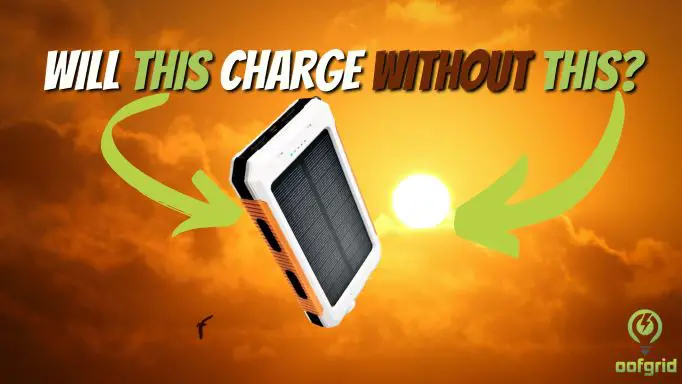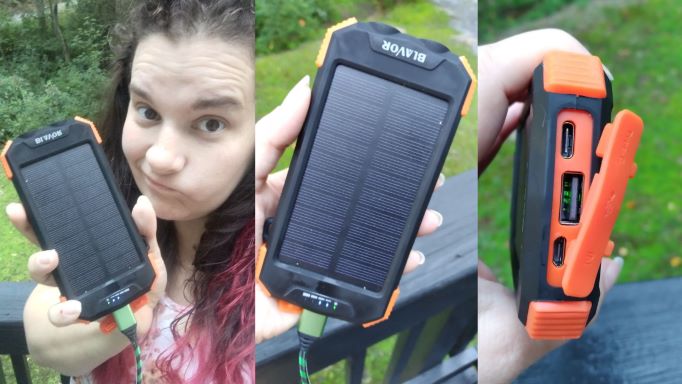Generators have two wattage values: startup watts and running watts. Startup watts are the number of watts a portable generator produces for a specific time (a few seconds) while running watts is the amount of power the generator produces continuously. Before you make your investment decision, you should understand how each of these values impacts your choice of a generator.
Contents
Running watts vs startup watts
If you own a generator, you need startup wattage to get the device running. Most units provide this wattage temporarily and hence the name `peak watts’ or `surge watts’. When the electric motor is turned on, the power current begins to flow.
Then, the magnetic fields pull each other making the motor to start turning. As the speed increases, the current reduces making the motor to reach full speed. During the short startup period, the current is about 5 times higher than when the motor is at full speed.
As the current increases, a circuit breaker helps to prevent power overload. Without it, the generator could catch fire.
Nevertheless, it still allows higher levels of current to flow within a short period. However, if the current remains too high, the circuit breaker will trip.
See our recommendations for the quietest portable generators here
Startup watts
This is the wattage you need to power the generator for a few seconds before it achieves maximum wattage. The startup watts will ensure the motor spins to the operation RPM and gives the most accurate estimate. If the startup wattage is too high, it can make the generator to labor too much or stall from the electrical loading.
Running watts
This is the wattage you need to keep the refrigerator running. It determines the number of appliances a generator can run. Your generator will provide this type of wattage continuously.
Note – some models can exceed the maximum wattage without triggering the circuit breaker.
How to determine startup watts and running watts
If you can’t determine the exact wattage for your appliance, you can make an estimate. Generally, startup watts are calculated by the following equation: WATTS = VOLTS x AMPS. This can also be estimated as (1-2X the running watts).
On the other hand, running watts are calculated by adding up all the devices you want to power – it should be at least 75% of watts.
For instance, if the current is 2A and the voltage is 110 V, you just multiply 2A by 100V to get 200 watts. Most circuit breakers will have the watts written on the handles.
This is basically, the maximum amount of power a circuit can handle before it trips. Be sure to read the operating manual to determine the amps and volts.
The wattage output will determine the number of appliances you can run at a time or simultaneously. For those items with higher startup power wattage, you should use a higher rating to know the exact power requirements.
Some portable generators may require additional power that can only last for a few seconds. The initial load is very important when calculating your wattage. When you ignore the power outage of your generator, you could end up stressing the internal components which may lead to failure.
Check out our recommendations for the best budget portable generators here

How do I choose the correct wattage?
Most generator manufacturers use startup watts as the value when choosing a generator. This is what you should look for after reading the specs of the generator you want. While you may expect a 3000W generator to power 3000W appliances, this is not always the case.
The startup watts must also be taken into consideration. Small portable generators could have the capacity to run the load but may lack the starting power required.
For example, a generator can have 2000 starting watts and 1600 running watts but cannot power an air conditioner that requires 2100 watts to start. But if the generator manages to work, overloading it will shorten the lifespan.
But here is the thing. Although the two wattage values may seem complicated, this is what you need to ensure there are no unwanted circuit breaks. Don’t just rely on the generator’s model name.
If you want to power your appliances, you should start with the highest to the lowest. Sometimes, you need to consider using the same circuit when more than two people are using the generator.
Here is a Wattage guide or You could check out our Wattage Calculator
| Appliances | Running Watts | Start Up Watts |
|---|---|---|
| Clock Radio | 3 W | 5 W |
| Phone Charger | 3 W | 5 W |
| Google Nest | 5 W | 5 W |
| Tablet Computer | 10 W | 15 W |
| 32 In LED TV | 20 W | 60 W |
| Air Purifier | 25 W | 30 W |
| Humidifier | 35 W | 40 W |
| Cooling Fan | 40 W | 60 W |
| Freezer | 40 W | 60 W |
| PS4 or Xbox | 50 W | 120 W |
| Lightbulb 60 W | 60 W | 60 W |
| Water Dispenser | 100 W | 100 W |
| Refrigerator | 150 W | 300 W |
| American Style Refrigerator | 200 W | 500 W |
| Garden Strimmer | 300 W | 500 W |
| Submersible Water Pump | 350 W | 500 W |
| Music Stereo | 400 W | 400 W |
| Vacuum Cleaner | 400 W | 1000 W |
| Toaster | 700 W | 1900 W |
| Electric Drill | 800 W | 1100 W |
| Coffee Maker | 800 W | 1000 W |
| Washing Machine | 800 W | 800 W |
| Lawn Mower | 1000 W | 1500 W |
| Air Fryer | 1400 W | 1400 W |
| Air Compressor | 1500 W | 4800 W |
| Oven | 2000 W | 2000 W |
| Home Air Conditioner | 1200 W | 4000 W |
| RV Air Conditioner | 1300 W | 4500 W |
| Belt Sander | 1400 W | 2400 W |
| Hairdryer | 1400 W | 1400 W |
| Hammer Drill | 1700 W | 1600 W |
| Air Compressor – 1 HP | 1600 W | 4800 W |
| Welding Rig | 2500 W | 3000 W |
Final thoughts: Difference between running watts & starting watts?
Portable generators are better suited to providing your home with power during an outage. The last thing you want is to buy a portable generator only to realize it’s not powerful enough to supply power to all appliances.
Therefore, you should pay close attention to both running and startup watts when buying a generator.







